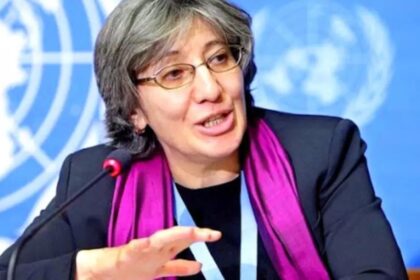RASC News Agency: Human Rights Watch, commenting on the United Nations’ recent three-year report on Afghanistan’s media landscape, stated that the Taliban have “obliterated the country’s media environment and cultivated an atmosphere of pervasive fear,” rendering Afghanistani journalists incapable of conducting investigations or reporting freely. The organization revealed that the Taliban have drastically curtailed the scope of domestic media reports and are actively intervening in newsrooms to “eradicate any semblance of critical content.”
The UN report, jointly released by UNAMA and its Human Rights Office, detailed that over the past three years, journalists and media workers in Afghanistan have endured 336 documented cases of threats, intimidation, arbitrary arrests, mistreatment, judicial harassment, and imprisonment. Of these, 256 journalists comprising 249 men and 7 women were arbitrarily detained, while 130 journalists, including 122 men and 8 women, were subjected to torture and other forms of abuse. The United Nations has called on the Taliban to guarantee the safety and independence of journalists and media personnel. The report further warns of an increasingly oppressive environment marked by “censorship, intimidation, and restricted access to information.”
Human Rights Watch noted that Afghanistan media outlets are now compelled to obtain prior approval from Taliban authorities before publishing any content, exposing them to systematic censorship. The organization highlighted that media entities are prohibited from addressing topics deemed to undermine public opinion or diminish morale regarding Taliban governance. Before the Taliban’s resurgence, Afghanistan boasted more than 500 active media outlets. However, by November 2021, nearly half had ceased operations due to “the withdrawal of donor funding, the Taliban’s intensifying restrictions, and the mass exodus of journalists fleeing the country,” Human Rights Watch reported.






